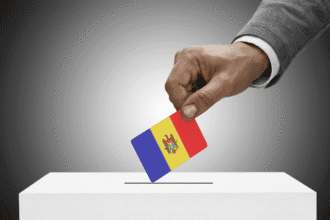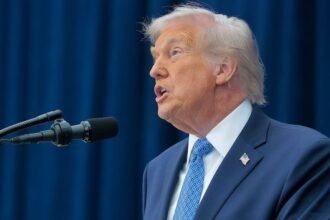Following the 2025 federal election, Dutton’s influence on Queensland election outcomes has taken front stage. Although Peter Dutton has long been a major player in Queensland politics, this time his political style and leadership seem to have received mixed reviews. This paper will look at how his attitude and policy choices affected the outcome of the election and helped to produce an unexpected change in voter mood in Queensland.
How did Queensland's election result reflect Dutton's leadership?
Renowned for his close ties to Queensland, Peter Dutton has always been a prominent political player there. Having significant family ties in the Moreton Bay area, where his great-grandparents settled in the 1860s, he has always been considered a fierce competitor in his native state. Strong agricultural origins in his family helped shape his reputation as a politician sensitive to local issues. Dutton’s appeal in Queensland appeared rather guaranteed for years. But in 2025, the effect of Dutton on Queensland election outcomes became rather clear.
Queensland shockingly gave the Labor Party a win in the election. Queensland has long been a Liberal Party bastion, but this time the dynamics changed. Although Dutton’s great presence in the state first seemed like a benefit, his policy decisions and leadership style alienated many voters, especially in suburban and regional areas. Dutton had a major influence on Queensland’s election than anyone had expected. It became evident that although he was well-known, his divisive words and behavior turned off many of his once supporters.
About Dutton's leadership approach, what impressions did Queensland voters have?
About Dutton’s leadership, Queensland voters showed conflicting opinions; so, one of the main points of discussion was how Dutton affected the outcome of the election. Many Queenslanders, particularly women and younger people, felt his political approach increasingly challenging to embrace. Some called his leadership bullying, which resulted in the rejection of his approach. Long-time conservative voter Sue from Petrie expressed her dissatisfaction with Dutton: “Dutton’s demeanor doesn’t connect with the average person. He strikes me as a bully more than a leader.
Many additional swing voters, particularly in suburban regions like Moreton Bay, also reflected this attitude. Dutton’s leadership seemed to them to no longer reflect their ideals or solve their problems. Dutton’s influence on Queensland elections was especially clear in the responses of the voters to his proposals. Dutton’s conflicting opinions on public service job cuts, the work-from-home dispute, and electric car taxation, for example, turned off important demographic groupings. Particularly as Labor conducted robust, well-targeted campaigns in these areas, his inability to offer an unambiguous program added to the mistrust of his leadership.
Furthermore, the emergence of the “teal” independents, who separated themselves from both major parties, can be considered a direct reaction to Dutton’s influence on Queensland’s election. Like Ellie Smith, these contenders drew supporters looking for alternatives to the divisive political environment and disappointed with the major political parties. Dutton’s influence on Queensland’s election was felt in the rising number of independent candidates who attracted notable support, which reflected the growing belief that the current quo was unacceptable. Read another article on the Canadian Federal Election 2025
How might Labor Profit from the Dutton Effect?
Dutton’s influence on Queensland election outcomes presented Labor with a special chance to appeal to those unhappy with Coalition leadership. Quick to seize the changing voter mood, the Labor Party ran a targeted campaign in electorates, often liberal strongholds. Labor’s messaging was straightforward and concentrated on the concerns of Queenslanders including cost of living, healthcare, and housing affordability.
Labor’s capacity to relate to important demographic groups—especially women and younger voters—was vital in helping to tip the vote in their favor. Labor provided a clear and consistent program, but Dutton’s influence on Queensland’s election let them draw attention to the shortcomings in the Coalition’s campaign. Labor positioned itself as a steadier and inclusive alternative as Dutton’s proposals were progressively seen as useless and divisive. Dutton affected Queensland elections as voters started to favour Labour candidates who claimed to reject the past and provide a more cooperative way of governing.
Furthermore crucial for Labor’s win was Queensland’s political fragmentation and the preferential voting system. Many moved to minor parties or independents as voters grew more disappointed with the big parties. Labor gained from this fragmentation since Dutton’s influence on Queensland’s election changed the preferences of voters who were no longer willing to back the Liberal Party.
Future Political Development for Queensland:
Dutton’s influence on Queensland election outcomes points the Liberal Party in the state into a period of turmoil. Historically, a major player in federal elections, Queensland is today regarded as a more erratic political battlefield. The swing away from the Coalition in this election points to voters’ declining degree of party alignment as compared to past times. For the Liberal Party, especially for Dutton, who has long been seen as one of the most powerful personalities in Queensland politics, this change serves as a wake-up call.
Dutton’s leadership will come under close examination while the ballots are still undercounted. Unquestionably, Dutton influenced Queensland’s election; voters’ discontent was expressed in a way that would shape the political scene for years to come. The Liberal Party will have to review its policies as the outcomes develop if it is to rebuild the confidence of Queenslanders. This covers knowing the causes of Dutton’s influence on Queensland’s election and whether a leadership change is required to forward the party.
Moreover, as independent and minor party candidates keep becoming more popular, Queensland’s political future might experience increasing fragmentation. This change can result in a more varied political scene in the state as parties must be more adaptable to the worries of the voters. Dutton’s influence in the Queensland election could very well signal the start of a new chapter in Queensland politics whereby conventional party lines are blurring and fresh political forces arise to question the status quo.
In the end, Dutton's Effect on Queensland's Election
Ultimately, it is impossible to overestimate how Dutton affected Queensland election results. Many people started to view his leadership, which at first looked to provide strength and consistency, as a liability. The change in public opinion was obviously in response to his divisive policies and leadership approach. The results of the 2025 election illustrate how much Dutton’s attitude and choices affected the result. To remain relevant to Queensland’s voters going forward, both the Liberal Party and Labor will have to change with the political landscape of the state.
It will be interesting to see whether Peter Dutton influences Queensland election outcomes becomes a turning point in Australian politics as Queensland develops politically. The voters obviously want a leader who can relate to their issues and provide concrete answers, not only great speech. It remains to be seen whether Dutton can adjust his leadership or if a fresh generation of political leaders will surface to seize control.








